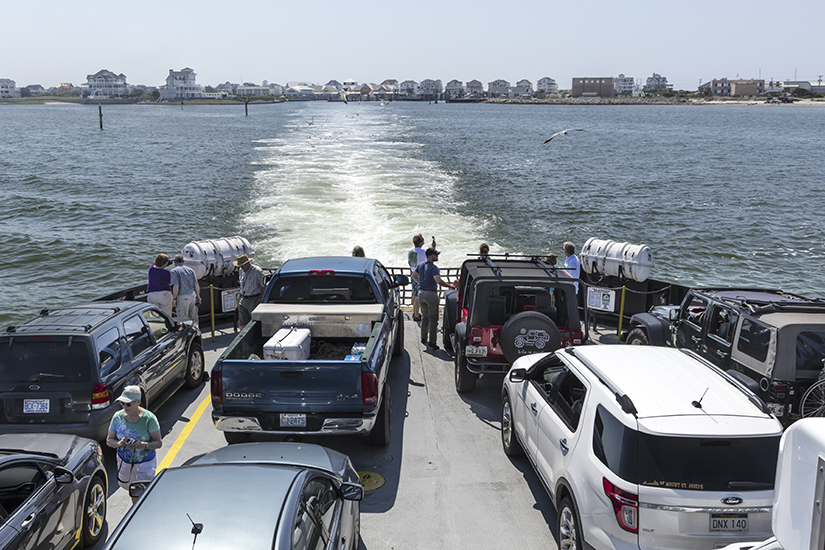|
Getting your Trinity Audio player ready...
|
According to Ronnie Keeter, what draws most engineers to the job is their love of problem solving. That was certainly the case for him. As chief engineer of the North Carolina Department of Transportation (NCDOT), he has no shortage of challenges to tackle to keep the state running smoothly.

Keeter oversees and directs the engineering and program activities of the 14 highway divisions in North Carolina, Transportation Mobility and Safety Division, the Central Units, and the Technical Services Division. He is in charge of more than 80,000 miles of road across 100 counties.
North Carolina, in particular, calls for special attention to its diverse terrain. “We have mountains, we have the Piedmont, and we have coastal plains and the coast,” the engineer says. “We’re one of the fastest growing states . . . so it’s a balance between making decisions that are right for the rural areas to keep them relevant and then the same with urban areas, which have plenty of needs too.”
Born and raised in North Carolina, Keeter discovered his interest in construction as a high school student—he worked at sites after school and during the summers. From there, he studied civil engineering at the University of North Carolina in Charlotte, earning a spot in a training program through the NCDOT that helped students find their niche. He climbed the ranks from division engineer (focusing on county maintenance) to his current role in the C-suite.

“There’s a satisfaction with seeing a project through,” the chief engineer says, “as it betters a community or saves lives by making something safer or saving money by lasting longer.”
These are the goals that Keeter and his teams keep in mind when they embark on projects that span North Carolina, including two federal grant-funded projects to install broadband across the interstate. “The scope of the project was very large,” Keeter says. “Part of that objective was getting a backbone of broadband to rural areas.” One was built across I-95 to US 70 from the border of Virginia to South Carolina, and the other went along US 74 from Nixonton to Asheville, totaling hundreds of miles of highway.
Keeter and his team were able to procure the grant through the Federal Highway Association by proving the feasibility through partnership with private companies. Together, they wrote a request for proposal. The team ensured that the state got the best value for its tax dollars by having the private companies give a bid on the construction, operation, and maintenance over a certain period of time. One was chosen to design and install the line, while another was selected to operate and maintain it.

Ensuring that all stakeholders are satisfied is another core aspect of Keeter’s work. “We have elected officials and so we all collaborate to create the best project,” explains the chief engineer, adding that the teams also work with the companies providing resources and agencies that advocate for interests affected by the construction.
This could mean collaboration with environmental fish and wildlife teams, the engineering corps, historic preservation office, or economically disadvantaged neighborhoods. “We work together to find the best solution possible to make it work,” Keeter says.
And recently, the impacts of COVID-19 have called for not just adjustments to ways of working, but budget uncertainty. Since the majority of NCDOT’s revenue comes from gas taxes, projections for 2021 were highly unpredictable.
“It was hard to forecast those revenues because we hadn’t experienced anything like that in recent history to be able to tell exactly what that work is,” Keeter says. Still, the chief engineer’s judicious mindset has him and his team poised for success, come what may. And the pandemic has just provided another lesson in problem-solving.
“We had to reevaluate many things to make sure that we’re making good decisions that serve the people who live and work and use our road,” he explains. “So that means designing projects in a way that is the safest for the traveling public, encourages economic growth, and that are best for North Carolina in general.”

